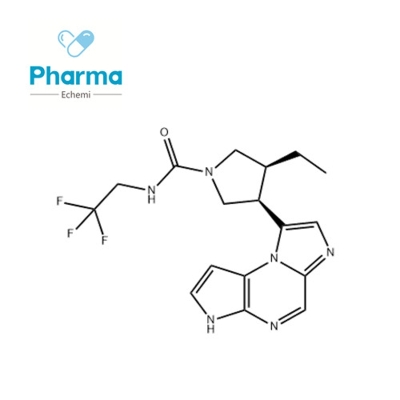-
Categories
-
Pharmaceutical Intermediates
-
Active Pharmaceutical Ingredients
-
Food Additives
- Industrial Coatings
- Agrochemicals
- Dyes and Pigments
- Surfactant
- Flavors and Fragrances
- Chemical Reagents
- Catalyst and Auxiliary
- Natural Products
- Inorganic Chemistry
-
Organic Chemistry
-
Biochemical Engineering
- Analytical Chemistry
-
Cosmetic Ingredient
- Water Treatment Chemical
-
Pharmaceutical Intermediates
Promotion
ECHEMI Mall
Wholesale
Weekly Price
Exhibition
News
-
Trade Service
Autoimmune hepatitis (AIH) is a serious inflammatory liver disease
.
The current standard of care for autoimmune hepatitis is corticosteroids alone or in combination with azathioprine, which often has serious adverse effects
.
Hydroxychloroquine (HCQ) is a derivative of the heterocyclic aromatic compound quinoline and has long been used as an antimalarial drug
.
Currently, it is an excellent candidate for the treatment of autoimmune diseases such as systemic lupus erythematosus (SLE) and rheumatoid arthritis (RA).
Treatment with HCQ has been reported to reduce liver damage
in COVID-19 patients.
Other studies have found that HCQ may have inhibitory effects
on immune cell infiltration and activation of joint inflammation.
Schematic diagram of the role and mechanism of HCQ in the treatment of autoimmune hepatitis:
HCQ improved liver pathological damage and inflammatory infiltration in mice with autoimmune hepatitis:
The central objective of this study is to investigate the therapeutic efficacy and inflammatory immune molecular mechanisms
of HCQ in experimental autoimmune hepatitis (AIH).
HCQ treatment improves liver pathological injury, inflammatory infiltration, and promotes downregulation
of CD8 T cell differentiation in regulatory T cells and S-100 antigen-induced AIH mice.
In vitro, HCQ also inhibits the secretion of pro-inflammatory cytokines (IFN-γ, TNF-α and IL-12) and promotes the secretion
of anti-inflammatory cytokines (TGF-β+1).
HCQ mainly impairs T cell lipid metabolism, but does not promote glycolysis and promotes T cell lipid metabolism differentiation and function
.
Mechanically, HCQ downregulates GRK2 membrane translocation in T cells, inhibits GRK2-PI3K interaction to reduce PI3K recruitment to the membrane, and then inhibits phosphorylation of PI3K-AKT-mTOR signaling
.
Pretreatment of T cells with paroxetine, a GRK2 inhibitor, interfered with the HCQ effect
on T cells.
HCQ also reversed the activation
of the PI3K-AKT axis by 740 Y-P (PI3K agonist).
At the same time, HCQ inhibits PI3K-AKT-mTOR, JAK2-STAT3-SOCS3 and increases AMPK signaling
in the liver and T cells of AIH mice.
Lipid metabolism in T cells is controlled by HCQ:
HCQ inhibits the activation of JAK2-STAT3-SOCS3 and promotes phosphorylation of AMPK in T lymphocytes:
In summary, HCQ has a specific and effective therapeutic effect on autoimmune hepatitis and concomitant liver injury, which is attributed to HCQ acting on GRK2 translocation, inhibiting PI3K-AKT and inflammation-related JAK2-STAT3 signals related to T lymphocyte metabolism, thereby regulating lipid metabolism of T cell function to regulate T lymphocyte differentiation and function
.
References: Jin C, Gao BB, Zhou WJ, Zhao BJ, Fang X, Yang CL, Wang XH, Xia Q, Liu TT.
Hydroxychloroquine attenuates autoimmune hepatitis by suppressing the interaction of GRK2 with PI3K in T lymphocytes.
Front Pharmacol.
2022 Sep 15; 13:972397.
doi: 10.
3389/fphar.
2022.
972397.
PMID: 36188529; PMCID: PMC9520598.







